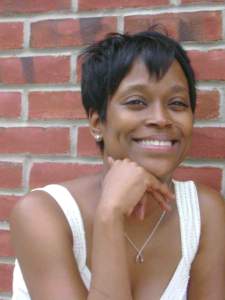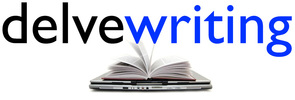 Photograph: Jim Wileman via The Guardian Photograph: Jim Wileman via The Guardian
Picture books are short and simple, written for young children, so they must be easy to write—or so we hear from people who have never attempted one. Picture book writers know that’s not true, but their length does make it more practical to revise them, perhaps multiple times, and even to completely re-think or “re-imagine” them, than when working with longer forms.
That’s what we aim to help you do in this webinar with your picture book manuscripts, both during the class and for years afterwards. As independent editors, and in-house children’s book editors in New York before that, both of us have years of experience in working with writers on picture books. Based on our “Revising and Re-Imagining Your Picture Book” in-person workshop, this webinar will teach you techniques to help you find problems with your manuscript, reshape it, and then polish it up before you send it out. To give you an idea of what to expect, you can watch the recording of “The Unwritten: What You Don't Say When Writing Picture Books” for free--simply follow the link to register. We gave this webinar on March 18: it includes insights into how picture books work, useful information, and tools, and it doubles as a preview of “Revising and Re-Imagining Your Picture Book Manuscript.” Some of what we will cover in the upcoming online course: April 29 Using Reader Response Theory to Deepen Our Understanding of How Picture Books Work: After some introductory points about the unique challenges of writing picture books, we will look at the two opposing approaches to understanding literature and explore how to use the least familiar of the two, reader response theory, to enrich your picture book. May 6 Revising at the Big Picture Level to Get Your Story Working: In this session we will explore ways of seeing your story in a new light—the true meaning of “re-vision.” We will try out techniques from the one-line summary to the story grid. May 13 Re-Imagining Character and Setting to Find a Fresh Approach: Sometimes there’s nothing much wrong with a story, but it needs a fresh approach. It, or part of it, needs to be re-imagined. In this session we will look into methods to learn more about your main character and how to use different settings to tell a different story. May 20 Re-Imagining POV and Voice to Find a Fresh Approach: In this session we will continue to re-imagine, this time looking at point of view and voice, and find ways to transform how we are approaching them. May 27 Revising at the Word Level to Polish Your Story: In this session, we will present and demonstrate self-editing methods that you can use to clean up your manuscript without hiring a copyeditor. June 3 Discussion, and the State of the Market: In this session we will review the course, answer all remaining questions, and take a look at the current picture book market and how it affects (and doesn’t) what you have to do as writers. We are also providing a free 7th session, a recording of “Listening to Others… Or Not” from our recent “Editing without an Editor webinar, on critique groups, beta readers, working with children, and how to and how not to pay attention to the market. In each session, we will provide a clear framework, examples from current and classic picture books (“touchstone” books), hands-on exercises, handouts and tools, recommended resources, and time for questions and discussion. Every session after the first one will open with examples from the “homework” from the previous week or from critiques (more on those below). We deliberately set this class up as a protected space in which you can feel free to make mistakes, ask questions you worry are stupid, and try out new directions; in this class, there will be no agents sitting in, no pitch sessions, no “opportunities to submit a manuscript” to win, because we want you to be able to focus on your writing and what you are learning in the class without feeling self-conscious and anxious to get it “ready.” This will be six weeks of delving deep into your picture book writing, and we want you to enjoy it. A highly recommended (though not required) book, to help you extend what you learned in the class: Writing Picture Books by Ann Whitford Paul. Useful background on types of picture books can be found in A Family of Readers by Martha Parravano and Roger Sutton. Special PB critique offers: Both Eileen and Harold are offering picture book critiques at a special discounted rate to workshop participants. Instead of our usual fee of $200-400, we are charging $75 for the first critique and $100 for additional critiques; we will also give picture book critiques to workshop participants at a discount for a year after the workshop. For more details, instructions for signing up, and payment links, go to http://www.kidsbookrevisions.com/PB-workshop-critiques.htm  Eileen Robinson Eileen Robinson
About the Instructors
Eileen Robinson published both fiction and nonfiction, as an Executive Editor at Scholastic, as well as at Harcourt. She got her start in educational publishing in classroom and school and library and moved on to work with magazines, book clubs, book fairs and Scholastic trade, helping to create product that could work across markets. Now an editorial consultant, she works with both published and unpublished authors on picture books through young adult novels, and helps them strengthen their writing and get published. She also consults with publishers on manuscripts before they go to press. Eileen created the site F1rstPages.com to help authors and partnered with Harold Underdown to provide online tutorials at Kids Book Revisions (kidsbookrevisions.com), where you can get the benefit of two professional editors simultaneously. She recently launched Move Books, a children’s book publisher dedicated to moving boys to read.  Harold Underdown Harold Underdown
Harold Underdown is an independent editor; he does critiques, helps to develop manuscripts, and provides other editorial and consulting services for individuals and publishers.
Harold wrote The Complete Idiot's Guide to Children's Book Publishing, now in its third edition. He founded and runs "The Purple Crayon," a respected web site with information about the children's publishing world at www.underdown.org. He speaks and gives workshops through the Highlights Foundation, SCBWI's national and regional conferences, and Kid’s Book Revisions (offering online and on-site tutorials and workshops in partnership with Eileen Robinson). As an in-house editor, he worked at Macmillan, Orchard, and Charlesbridge, and has experience in trade and educational publishing. |
Six Wednesdays
April 29 - June 3 at 8 pm EDT (7 pm CDT/6 pm MDT/5 pm PDT) NOTE: Live registration is now full. However, we are extending a special offer for people to attend as Recordings-Only members. With this registration, you will receive:
Cost: $225 Standard $180 for SCBWI Members |
Revising and Re-Imagining your Picture Book
with Eileen Robinson and Harold Underdown
of Kid’s Book Revisions
